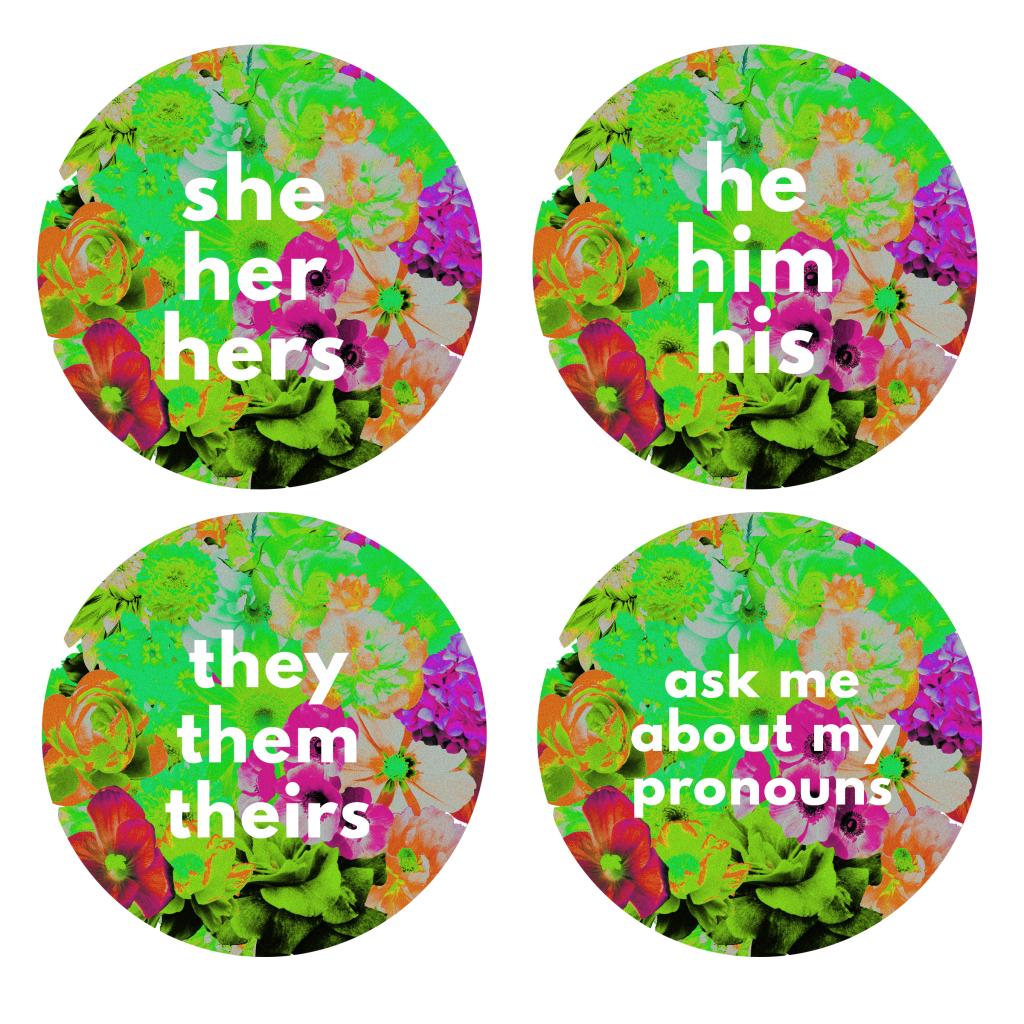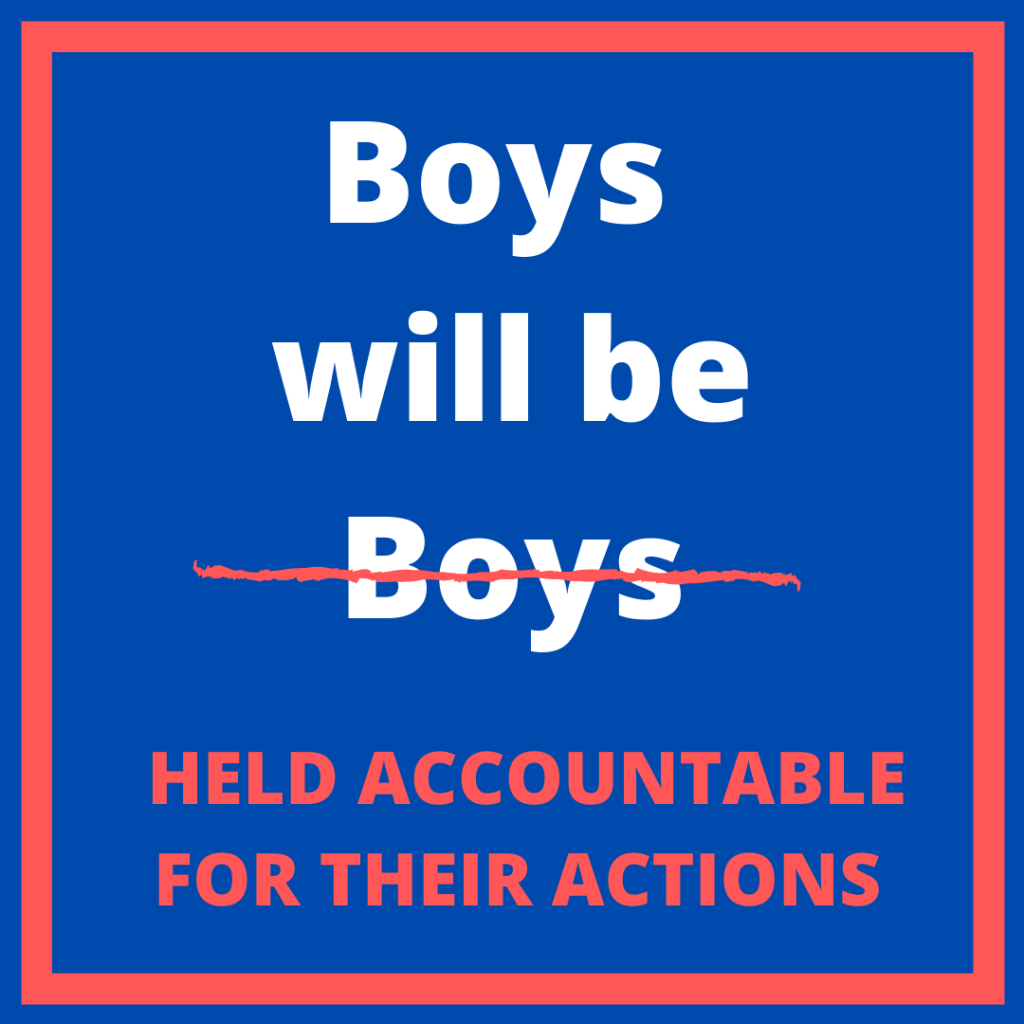Virtual Sexual Assault Awareness Month: Deconstructing Rape Myths and Narratives (Week 2) Round-Up
In the absence of physical space to learn, create, and come together, the Women’s Center is taking Sexual Assault Awareness Month (SAAM) 2020 online. Each week during April, we will focus on a specific topic/theme as it relates to sexual violence awareness and prevention (see image below). Together, via out social media platforms like Facebook,Twitter, and Instagram, we can watch videos, read articles, and engage in other content for learning and skill-building.
 UMBC’s Sexual Assault Awareness Month online calendar includes weekly themes to help explore important concepts related to sexual violence awareness and prevention.
UMBC’s Sexual Assault Awareness Month online calendar includes weekly themes to help explore important concepts related to sexual violence awareness and prevention. Have you been taking a break from social media? Missed a few posts? That’s okay! In addition to posting on social media throughout the month, at the end of each week, we’ll provide a round-up of all the content we shared along with some action items to consider doing.
We just wrapped up week two of SAAM and spent the last several days exploring rape narratives and myths through the following content:
1.What is rape culture? Rape culture is a sociological concept for a setting in which sexual violence is pervasive, normalized, or encouraged due to societal attitudes about gender and sexuality. As exemplified in this image, tolerance of things at the bottom leads to excusing the behaviors at the top.
 This pyramid describes rape culture, with words on the bottom including catcalling, rape jokes, and stalking. The top includes rape, molestation, and and drugging.
This pyramid describes rape culture, with words on the bottom including catcalling, rape jokes, and stalking. The top includes rape, molestation, and and drugging.
2. The prevalence of rape myths reinforces a very narrow definition of what sexual violence/rape is and how and when it happens. By deconstructing rape myths, we enable survivors to better access support and healing by ending a culture that blames victims. Learn more at Everyday Feminism
Want even more to read about this topic? Check out this list of books!
3. The phrase “Boys will be boys” is an “explain-away” that can work to reinforce rape culture (think back to that pyramid!).
Here is a helpful article from the Good Men Project that further explains the importance of unlearning to use this phrase, but first, take a listen to one of Dua Lipa’s newest songs, “Boys Will Be Boys” which adresses sexual harassment some women (and also some LGBTQ folks) experience. What do you think?
4. What about implicit biases? So much of media is focused on “the perfect victim,” but this stereotype perpetuates dangerous myths that limit our understanding of the broad ways in which rape impacts people. Check out this video to learn more.
What about LGBTQ survivors? We live in a world where “heterosexuality” is default, and also where we are told that victims are women and rapists are men; however, in creating and perpetuating this rape myth, we are silencing a vast majority of survivor stories whose experiences reflect their LGBTQ identities. Read more in this vice article.
 The Women’s Center’s pronoun pins!
The Women’s Center’s pronoun pins!
Important Take-Away:
→ Remember the pyramid! Tolerance of sexist attitudes, rape jokes, and catcalling all contribute to perpetuating rape culture.
→ Examine your implicit biases. There’s no such thing as a “perfect victim”, and far too many LGBTQ survivors are silenced by steryotypes and rape myths.
→ Cut out language that promotes rape culture. Never say “Boys will be boys”!
 Boys will be held accountable for their actions!
Boys will be held accountable for their actions!
Now that you’ve got some good readings in your tool kit, what will you do with them? Here’s some Action Items:
- Reflect on any implicit biases you might not realize you have. Read some of the articles we posted, reflect on your own beliefs, and start a conversation.
- Share one of the articles above on your social media platforms. Ask your friends or family members if they’d be willing to engage in a conversation with you about one of the takeaways that stood out to you.
- Learn more about how to cultivate a culture of consent. Here’s one more video on consent you can watch and share! Are you on twitter? Read more tweets written by Spring Up here, and feel free to use their proposed tweets – they gave their consent!
Follow the Women’s Center on myUMBC, Facebook, Twitter, and Instagram for SAAM updates and information throughout the month of April. You can also stay up-to-date by following #UMBCsaam
Throughout this time of distance learning, campus staff are still here and available for support. Do not hesitate to reach out for questions, concerns, or care.
On-Campus Resources Available for Virtual Support:
- Counseling Center
- Office of Equity and Inclusion
- University Health Services
- Women’s Center
- Visit Retriever Courage for a full list of campus resources and support to include resources for USG students, faculty, and staff
- For up-to-date details on how to access these resources during this time of distance learning visit UMBC’s COVID-19 resources page.
To report a complaint of sexual misconduct or discrimination, please submit this online form.
Posted: April 13, 2020, 10:25 AM